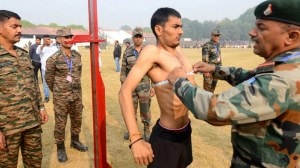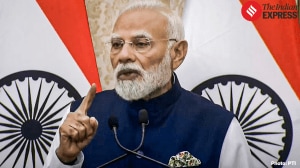All eyes are now on King Abdullah
On Monday, for the first time in a decade, the desert kingdom of Saudi Arabia—with its vast pools of oil, its status as the cradle of I...

On Monday, for the first time in a decade, the desert kingdom of Saudi Arabia—with its vast pools of oil, its status as the cradle of Islam and its violent clashes over faith and power—came under a strong king with centralised powers.
The death of King Fahd wakes Saudi Arabia up from the limbo of an ailing ruler and mutes the power struggles at play ever since the king grew too ill to rule. Now all eyes are on longtime de facto ruler, King Abdullah, a man with a reputation as a reformist whose progressive ideas often clashed with more traditional elements in the House of Saud.
However, say analysts, whatever their private grudges, family members are conditioned to fall in line behind the king. ‘‘The royal family isn’t just a family, it’s a political institution. It’s the only institution in the country, and it’s not new,’’ said Saudi author Turki al Hamad.
For decades, Saudi Arabia has appeared to both locals and outsiders as a maze of contradictions. Hyper-modern infrastructure is overlain on an ancient, tribal way of life; the petrodollar decadence of Versace and Mercedes Benz is intertwined with some of the world’s most rigid Sunni Islam; opulence and poverty rub shoulders.
The new king inherits the struggle that defined Fahd’s reign: the balance of progress with tradition. There is the balancing act, too, of luring Westerners into the kingdom to staff its oil companies without compromising what many Saudis see as a delicate—and threatened—Islamic identity.
Relations with the United States remain among the stickiest points for any Saudi ruler. The Saudi government’s tight ties with America enrages homegrown militants, most notably Osama bin Laden. But the September 11, 2001, attacks laid bare a well of animosity between the two longtime allies, whose damage has not been entirely undone.
Meanwhile, intellectuals, leftists and women have begun to demand political reform. Earlier this year, the kingdom held limited, men-only voting to elect members of local councils. It was the first election since the country was formed. But, simultaneously, three intellectuals were jailed after pushing for political reforms.
People here are deeply skeptical over just how much Abdullah will change the status quo, or even what reform means in a land so firmly entrenched in strict interpretations of the Koran. ‘‘We are talking about a ruling institution that’s developed a certain style over the decades,’’ said Ihsan Ali Bu-Hulaiga, a Saudi member of the appointed council that advises the royal family. ‘‘I can’t see big changes, really.’’
Both Abdullah and the newly named Crown Prince Sultan are around 80, so the current leadership appears to be more of a phase than a long-term government.
—LAT-WP



- 01
- 02
- 03
- 04
- 05




























